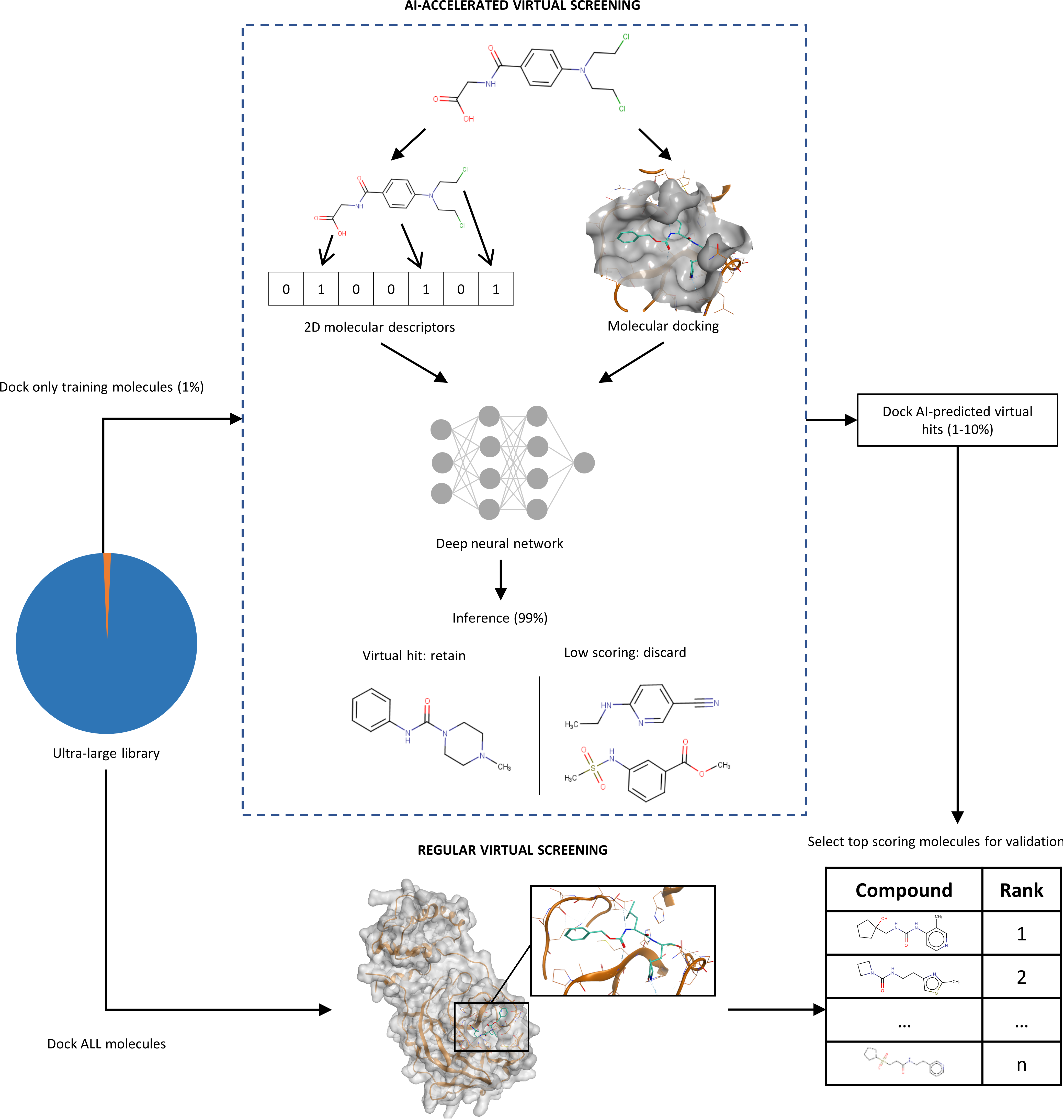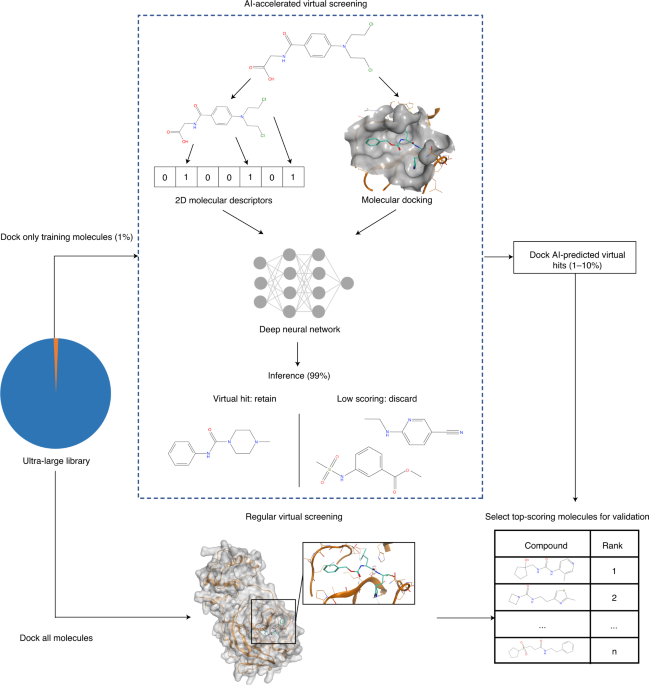Exploring the virtual chemical space with deep learning-accelerated docking
Published in Protocols & Methods
Docking-based virtual screening is one of the most popular techniques used in early-stage drug discovery to identify hits, due to its cost efficiency and the capability to evaluate millions of molecules against biologically and clinically relevant targets. However, with the recent emergence of make-on-demand libraries of billions of compounds, it has become increasingly more challenging to deploy docking due to the resources and time required to deal with such amounts of compounds. Consequently, accessing large chemical spaces remain out of reach for most groups in the drug discovery community.
Leveraging the expertise in computer-aided drug discovery and artificial intelligence, the Cherkasov lab at the Vancouver Prostate Centre has pioneered the field of machine learning-accelerated docking by developing Deep Docking, an in-silico platform that trains docking score predictors iteratively using small fractions of a library, and uses them to rapidly discard low-scoring molecules based on their pre-computed 2D structures without requiring to run simulations. This strategy reduces the amount of time-consuming docking by hundreds of folds, thus enabling to screen multi-billion libraries in just a few days with standard resources. Recently, we have applied Deep Docking to successfully identify novel inhibitor scaffolds for the SARS-CoV-2 main protease by prospectively screening a commercially available library of 40 billion molecules.

Figure 1. Schematic comparison of structure-based virtual screening performed with Deep Docking and conventional docking. Adapted from Gentile, F. et al, Nat. Protoc. 2022.
The success of Deep Docking, demonstrated also by the emergence of similar methods, motivated us to outline a procedure accessible to the broad drug discovery community. Our Protocol guides the prospective users through all the necessary steps for setting up and running a Deep Docking screening campaign using a docking program of choice on local machines, without requiring a deep knowledge of the underlying machine learning framework. An automated procedure is also described, which enables to run the screens on large computing clusters.
We hope that the Protocol will be useful for drug discovery practitioners and chemical biologists alike that are interested in scaling up their virtual screening capabilities, and that will encourage the development of the next-generation screening tools to keep pace with the ever-expanding chemical space.
Follow the Topic
-
Nature Protocols

This journal publishes secondary research articles and covers new techniques and technologies, as well as established methods, used in all fields of the biological, chemical and clinical sciences.



Please sign in or register for FREE
If you are a registered user on Research Communities by Springer Nature, please sign in